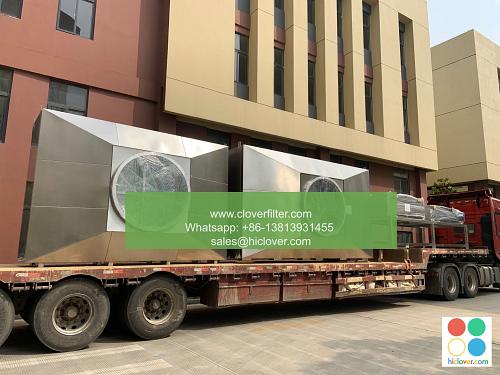Air Filter Replacement: Understanding Warranty and Expiration Dates

Proper air filter maintenance is crucial for ensuring the indoor air quality and energy efficiency of a building. One important aspect of air filter maintenance is replacing the filters at the right time. In this article, we will discuss the importance of understanding warranty and expiration dates when it comes to air filter replacement.
Why Air Filter Replacement is Important
Regular air filter replacement is essential for preventing air pollution and maintaining the health and wellbeing of occupants. A dirty air filter can lead to a range of problems, including reduced airflow, increased energy bills, and premature equipment failure. Furthermore, a dirty air filter can also lead to the spread of allergens and microorganisms, which can exacerbate respiratory issues such as asthma and allergies.
Understanding Warranty and Expiration Dates
When it comes to air filter replacement, understanding warranty and expiration dates is crucial. Most air filters come with a manufacturer’s warranty that specifies the replacement interval and expiration date. The warranty period typically ranges from 1 to 5 years, depending on the type of filter and application area. For example, HEPA filters used in hospital settings may have a shorter warranty period than those used in residential settings.
Application Areas and Replacement Intervals
The replacement interval for air filters varies depending on the application area. Some common application areas include:
* Residential settings: 1-3 months
* Commercial settings: 1-6 months
* Industrial settings: 3-12 months
* Hospital settings: 1-3 months
* Pharmaceutical settings: 1-6 months
It’s also important to consider the filter type and cleaning method when determining the replacement interval. For example, electrostatic filters may require more frequent cleaning and maintenance than pleated filters.
Consequences of Not Replacing Air Filters
Failure to replace air filters at the recommended replacement interval can have serious consequences, including:
* Reduced airflow and increased energy bills
* Preventing premature equipment failure
* Spread of allergens and microorganisms
* Reduced indoor air quality
Best Practices for Air Filter Replacement
To ensure proper air filter replacement, follow these best practices:
* Check the warranty and expiration dates on the air filter
* Replace the air filter at the recommended replacement interval
* Choose the right filter type and cleaning method for the application area
* Keep a record of filter replacements and maintenance schedules
By following these best practices and understanding warranty and expiration dates, you can ensure that your air filters are replaced at the right time, maintaining the indoor air quality and energy efficiency of your building. Remember, regular air filter replacement is crucial for preventing air pollution and maintaining the health and wellbeing of occupants. Prompt

